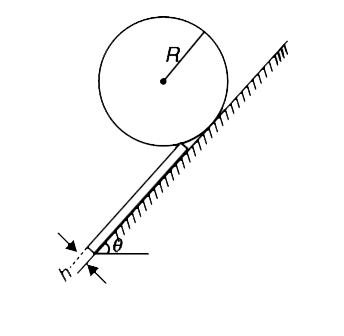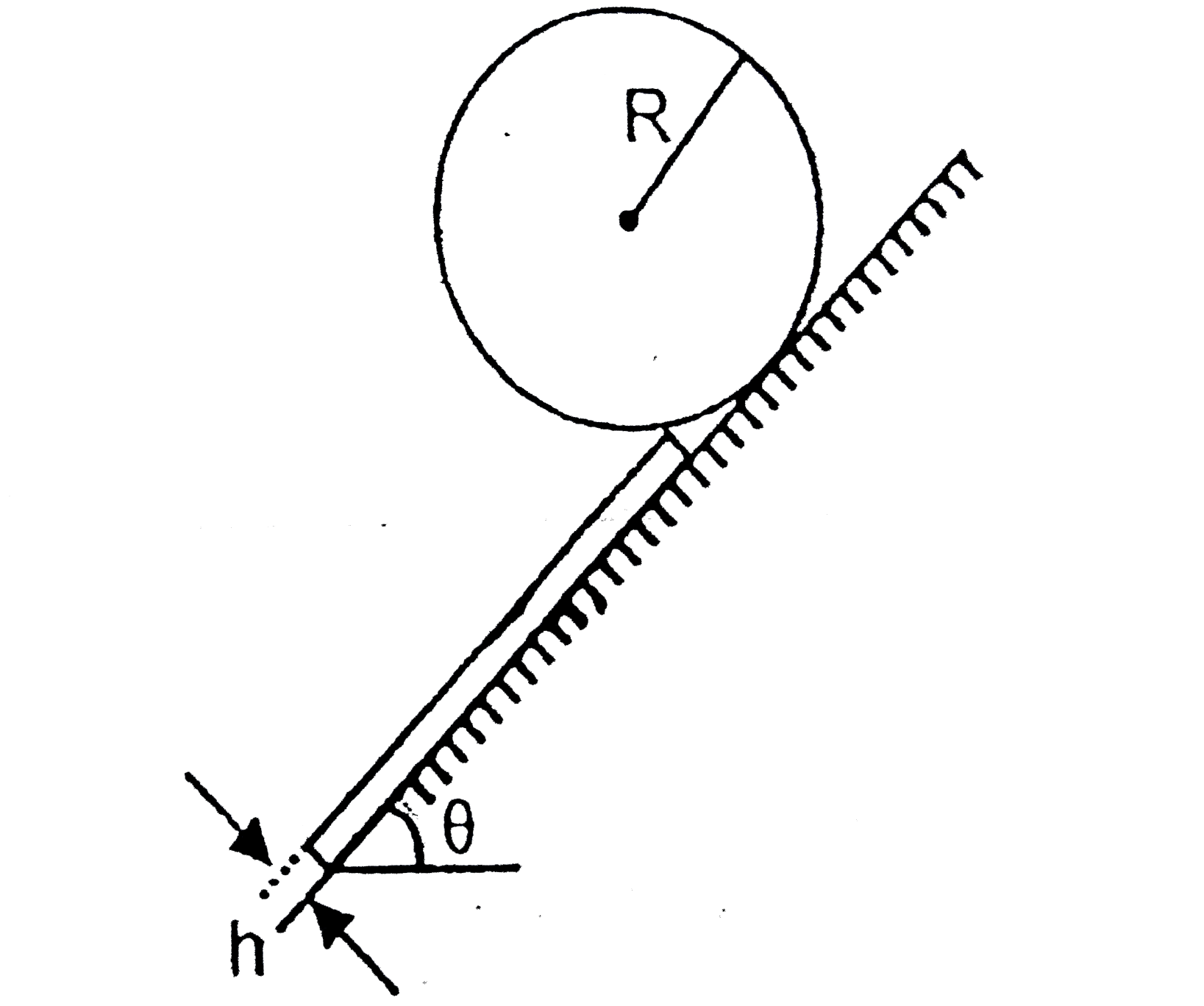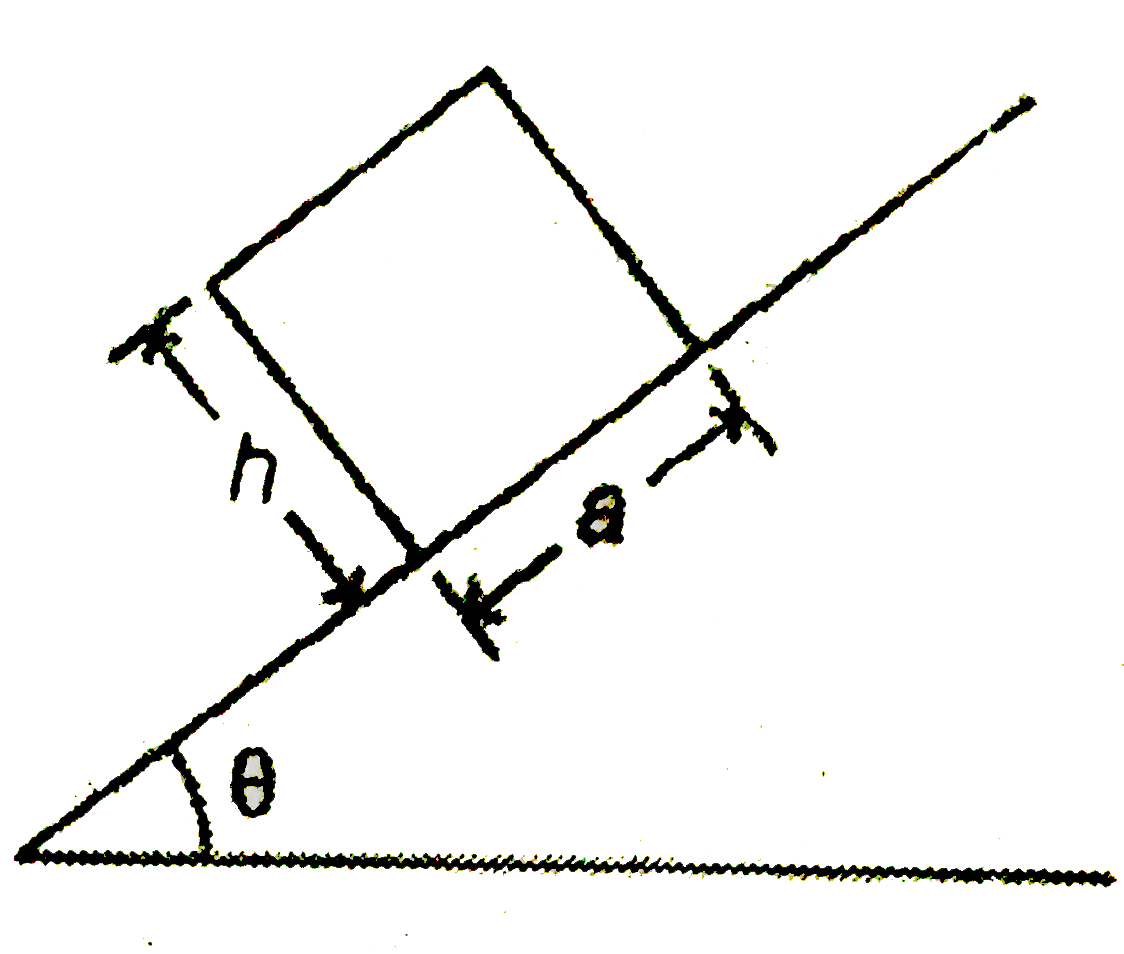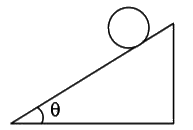There is a step of height h on an incline plane. The step prevents a ball of radius R from rolling down.
(a) If the inclination (θ) of the incline is increased gradually, at what value of θ the ball will just manage to climb the step?

(b) Does the gravitational potential energy of the ball increases or decreases as it climbs the step ?
The correct Answer is:(a) cosθ=R−hR
(b) Decreases
Step by step video, text & image solution for There is a step of height h on an incline plane. The step prevents a ball of radius R from rolling down. (a) If the inclination (theta) of the incline is increased gradually, at what value of theta the ball will just manage to climb the step? (b) Does the gravitational potential energy of the ball increases or decreases as it climbs the step ? by Physics experts to help you in doubts & scoring excellent marks in Class 11 exams.
Topper's Solved these Questions
Similar Questions
A ball is dropped from the height h on an inclined plane of inclination θ. If the coefficient of restitution is e, at what distance along the plane , the ball again collides with the plane.
View SolutionA ball of 1 gm released down an inclined plane describes a circle of radius 10 cm in the vertical plane on reaching the bottom . The minimum height of the inclined plane is … cm.
View Solution
Knowledge Check
- Question 1 - Select One
There is a step of height h on an incline plane. The step prevents a ball of radius R from rolling down. If the inclination (θ) to the incline is increased gradualluy, at some value of θ the ball will just manage to climb the step then value of θ is.
 Acosθ=RR+hBcosθ=R−hRCcosθ=R−2hRDsinθ=R−hR
Acosθ=RR+hBcosθ=R−hRCcosθ=R−2hRDsinθ=R−hR - Question 2 - Select One
A disc of radius R is rolling down an inclined plane whose angle of inclination is θ Its acceleration would be
A57gsinθB23gsinθC12gsinθD35gsinθ - Question 3 - Select One or More
A solid cylinder is rolling down a rough inclined plane of inclination θ. Then
AThe friction force is dissipativeBThe friction force is necessarily changingCThe friction force will aid rotation but hinder translationDThe friction force is reduced if θ is reduced
A block with a square base measuring a×a and height h, is placed on an inclined plane. The coefficient of friction is μ. The angle of inclination (θ) of the plane is gradually increased. The block will
 View Solution
View SolutionA spherical shell of radius R is rolling down an incline of inclination θ without slipping. Find minimum value of coefficient of friction.
 View Solution
View SolutionA block with a square base measuring axa and height h, is placed on an inclined place. The coefficient of friction is m. The angle of inclination (θ) of the plane is gradually increased. The block will.
View SolutionThe velocity of a sphere rolling down an inclined plane of height h at an inclination θ with the horizontal, will be :
View SolutionIf a rigid bady of radius 'R' starts from rest and rolls down an inclined plane of inclination θ then linear acceleration of body rolling down the plane is ______
View Solution

